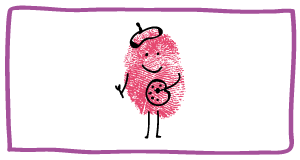Can a little gratitude go a long way? How universities can go beyond basic wellbeing tenets to improve the student experience during unprecedented times.
A quick Google search or a few minutes perusing wellbeing accounts on social media offers a litany of ways that wellbeing and mental health have been negatively impacted by COVID-19. Poor sleep and eating habits, difficulty staying active, low mood, and, of course, heightened stress and anxiety, seem to be the norm as we navigate this new territory of remote living, physical distancing, and looming uncertainty.
Under normal circumstances, university students are at increased risk for wellness and mental health challenges due to their age, academic pressure, and, for many, new social norms. Throw in the current public health crisis we’re experiencing and it’s not surprising that many university students are struggling now more than ever.
In recognition of these challenges, my office delivered a number of initiatives to help students improve the many dimensions of their wellbeing. The importance of sleep hygiene? Check. Evidence linking physical activity to mental health? Check. The many ways mindfulness can improve wellbeing? Check. These initiatives served an important purpose and empowered many students to make health-enhancing decisions.
But something was missing.
These are unprecedented times, and we needed more than just the typical response. Working in partnership with students, we endeavored to raise awareness around less appreciated but equally impactful ways to improve student wellbeing. This was an eye-opening process and created insights that will now be imbedded into our work moving forward.
Gratitude: Expressing gratitude can have a profound impact on our mental health and wellbeing. In times like these it can be challenging to focus on the positive; however, it’s precisely during these difficult times when we need this most. This practice is not meant to minimize the real stressors that we’re experiencing, but rather to remind us that even in the darkest of times, there are still things to be grateful for. Some ways we incorporated this into our work:
- Used social media platforms to highlight the empirically based benefits of practicing gratitude.
- Began individual and group meetings by asking students to share something that they are grateful for.
- Created simple suggestions for incorporating consistent gratitude practice. For example, “think of three things you’re grateful for each morning when you brush your teeth” or “start the morning journaling about something you’re grateful for”.
Sense of Belonging: In the mental health and wellbeing spheres, we often neglect discussions around how a sense of belonging is tied to physical and mental health. Physical distancing, quarantine, and lockdowns are at odds with our human need for connection. These needs are hard to replicate virtually. Belonging, however, is more than just connecting. Belonging is feeling like you’re truly accepted. When NYU Abu Dhabi transitioned to remote learning, many of our international students transitioned back to their home countries and our local students returned to their homes. As a result, their sense of belonging to our community diminished. They went from a bustling residential college experience to isolating at home while shackled to their screens. We wanted our students to feel what we truly believed: that their geographical location didn’t change the ways we wanted to connect and support them. We wanted them to feel deep pride and connection to not just the university, but also to their student community. To address this, we:
- Created drop-in “office hours” for students to check in. Key to this was refraining from assumptions about their experiences and entering into these conversations with the recognition that each student’s situation was unique, especially in terms of family dynamics, financial stressors, academic impact, and concerns around COVID-19.
- Organized virtual meals. Led by students, this aimed to replicate the more casual encounter of running into an acquaintance while grabbing lunch at the dining hall.
- Continued to hold flagship programs that historically brought the community together. One example was, “Doggy Destress”, where, in the past, we created an opportunity for faculty dogs to play with students as a way to reduce stress. This year, our student leaders instead ask students submit photos of their own dogs and other pets and allowed other students to comment.
Self-compassion: We often exercise a high level of compassion when someone else is navigating a difficult situation; however, we are far less tender towards ourselves when walking the same path. Additionally – in my opinion, largely due to social media – there has been a great deal of pressure to be productive during this strange time – for example, to use this increased time at home to learn a new language, take up knitting, or learn how to code. A reduction in productivity during COVID-19 is normal and should be expected; despite this, many of our students judged themselves for “not doing enough.” To address this need for self-compassion, we:
- Shared the research that suggests that disruption of routine, isolation, and uncertainty have a negative impact on wellbeing, which can contribute to a reduction in productivity.
- Helped students recognize their own self-judgement, explored how they might respond (most often, more gently) to someone else in a similar situation, and encouraged them to practice that same compassion towards themselves.
- Shared this research and the student experience with faculty and staff colleagues to encourage them to shift their expectations and be more flexible and understanding with students during this time.
While they may not come away from the COVID-19 public health crisis a fluent German speaker or having mastered the art of a sourdough starter, I hope our students do come away having created new routines and habits to help build their resilience and strengthen their resolve, which I believe will have lasting benefits beyond their time in university.
Author - Tina Wadhwa is the founder of NYUAD's Office of Health Promotion (HPO). In collaboration with NYUAD’s peer support group, REACH, the HPO offers a wide-range of inclusive opportunities related to improving community mental health, de-stigmatizing mental health concerns, communicating health-related information, and reducing risk on campus. Tina is passionate about collaborating with students to innovatively enhance individual and collective wellbeing on campus that contribute to student success (academic and personal) and a sense of belonging at NYUAD. She is a founding member of NYUAD’s Diversity, Equity, and Inclusion Committee.


